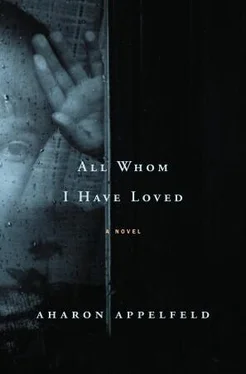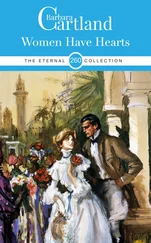Now I can picture Father as a beloved prince borne aloft on his admirers' shoulders, greeted in every city with flowers. Father does not speak, as the way of princes is not to speak. But now there is no one who knows that Father is a prince. In the city he has many acquaintances, but they also don't know that he is a prince. They speak to him as an equal. If they only knew, they would kneel before him. Our landlord has worked out a bit of the secret. Once he said to me, “Your father is a real prince; it's a pity that he doesn't pray.” I showed the landlord the book, and I pointed to Father's name and to his two paintings.
“I didn't know that he was a painter, but I knew he was a real prince,” he told me.
“How can you tell?”
“By his features. There are many real princes among the Jews, but they've forgotten who they are and they behave like anyone else.”
“Why have they forgotten?”
“It must be God's will.”
“And when will they wake up from their forgetting?”
“Who knows?”
At this time of the year the landlord works in the yard. When it rains he's in the cowshed or the barn. He walks slowly, mumbling to himself. Sometimes he speaks to the animals as if to partners who labor alongside him. Once I saw a cow giving birth to a calf. I could not bear the sight of the blood and the pain, and I went into the house.
I want to ask Father about the days when he would paint and travel with his paintings from city to city. But I don't ask because I know there are secrets of which one must not speak. Father guards a big secret; if you get too near to his secret, his face darkens.
Once, he saw me looking through the book about the history of art and said, “That's not for you.” I kept quiet and did not tell him that I had discovered his secret. “Why don't you read your own books?”
“They don't interest me.” I didn't hide it from him.
A smile spread over his face, and I knew that he understood me.
At night we go to the church refectory. It is full, and they serve corn pie, with milk and cream, at the counters. Father meets many acquaintances here, and they slap him on the shoulder. They say that the old man is sick and that it is doubtful that he will preach. It's a shame that here they don't know that Father is a prince. If they knew, they would carry him like they carry the venerable old man. True, Father is a silent prince, and he guards his secret behind seven doors. If he would only let me bring along that book, The History of Art in the Austro-Hungarian Empire, and show them the photo of Father and his two pictures, then they would believe me. They would cheer and crown him.
This evening the old man does not speak, but everyone sings. It is a thunderous song that shakes the walls of the hall. People cover their faces with their hands, and Father also sings with his eyes closed.
Then we walk for hours in the fine rain, visiting churches and galleries. Father does not like the pictures in the galleries, and he is particularly angry with a gallery that shows Jews in traditional clothes, calling it a desecration of man and other names that I don't understand. Before we take the tram, we go into a tavern and Father downs a drink or two. In the tram he suddenly says to me, “There are things that we will never understand.”
I know his mind is elsewhere, and yet I still feel that he is offering me a fragment of his mystery.
Cold, gray days follow and the sun is nowhere to be seen. Snow falls darkly and incessantly, covering the roofs and the fences. Even the mighty Prut stops roaring. Father comes home drunk and depressed and throws himself onto the bed. I don't know what to do, so I just sit next to him. When his depression worsens, he tears up papers and drawings, tossing them into the mouth of the furnace. This is no longer anger, but despair. The work at his school leaves him totally exhausted, the students have no talent, and the administration drains his vitality. “What am I asking, after all — just a little time and a studio!” he bursts out, and it seems to me that blood will spurt from his mouth, and I am shocked, frightened.
Every morning, while it's still dark, Father dresses and leaves to catch the first tram. His departure freezes the darkness of the room, and it seeps into me throughout the day. Sometimes I feel that I must be a burden to him and I want to slip away. When I told him that, he began to cry. Now he occasionally cries, and it's more frightening than his anger.
The landlord comes in every evening, bringing us provisions. Father scarcely talks to him and asks nothing. The landlord doesn't take offense. “Arthur, my dear, you mustn't despair, there is a God in heaven,” he says. Father raises his eyes as if to say, “Why should you torture me, too?” The landlord lowers his head, mutters a short blessing, and goes out.
But to me the landlord says something that shakes me: “God has removed Himself from him, and until he returns to his forefathers, he'll be tormented by demons. Where there is no God, there are demons; they breed like insects.”
“What should one do?”
“Pray.”
There is a kind of certainty in his voice that shocks me.
I don't remember how long this darkness lasts. With every passing day Father's face darkens, and the trembling of his hands increases. I want to help him, but I don't know how. One evening he returns home drunk and happy, a telegram in his hand. A distant friend — a forgotten friend who lives in Bucharest and was once a gallery owner — writes that he is putting a house at Father's disposal and has prepared a generous advance for him. The telegram ends: come to us at once; those who love you await you. Father reads it and tears roll down his cheeks. The good news affects him so that he can hardly stand on his feet. We drink coffee and do not eat supper. Father calls Victor a savior from heaven. He swings me high, up to the ceiling, proclaiming jubilantly, “Bucharest! Who would have imagined that redemption would come from Bucharest?!” After this he says no more, and I see tiredness overcome him. He sleeps deeply, and his breathing is regular. I cover him with a blanket and am glad that God has hastened to his aid.
Snow falls, and from day to day it grows colder. The Prut changes color, and now it is a dark blue, a hard and unpleasant color.
I sit at home and look at books. Once a day the landlord comes to the door and gives me a pear or an apple. Father tells me that at the end of the month we will be on our way.
“Don't forget that you're Jewish,” the landlord tells me when he comes back from the church, smelling of incense and in high spirits.
“I'll remember,” I say, so as to make him happy.
“Jews tend to forget it.”
In the evening we usually go downtown; we sit in a café or go into a tavern. Father is full of energy. He tells his acquaintances about his friend from way back who has invited him to Bucharest. Everyone's happy for him, joking around and wishing him inspiration for his work.
One evening he is set upon by a drunk, who calls him a dirty Jew. Father demands that the drunk apologize, but the man continues to curse him. Father hits him across the face, and the drunk collapses on the floor. Immediately, other drunks gather around, threatening Father. Father is quick to push them away, striking out fearlessly. I am afraid. On the way home he tells me, “You mustn't let wicked people get cocky; you have to beat them.” It has been a long time since he's spoken in full, clear sentences. After that he calms down and is happy, telling me of his plans and about Bucharest, a gracious city with many galleries — a gateway to France. I'm wary of his enthusiasm. After he becomes enthusiastic, depression engulfs him.
Читать дальше












